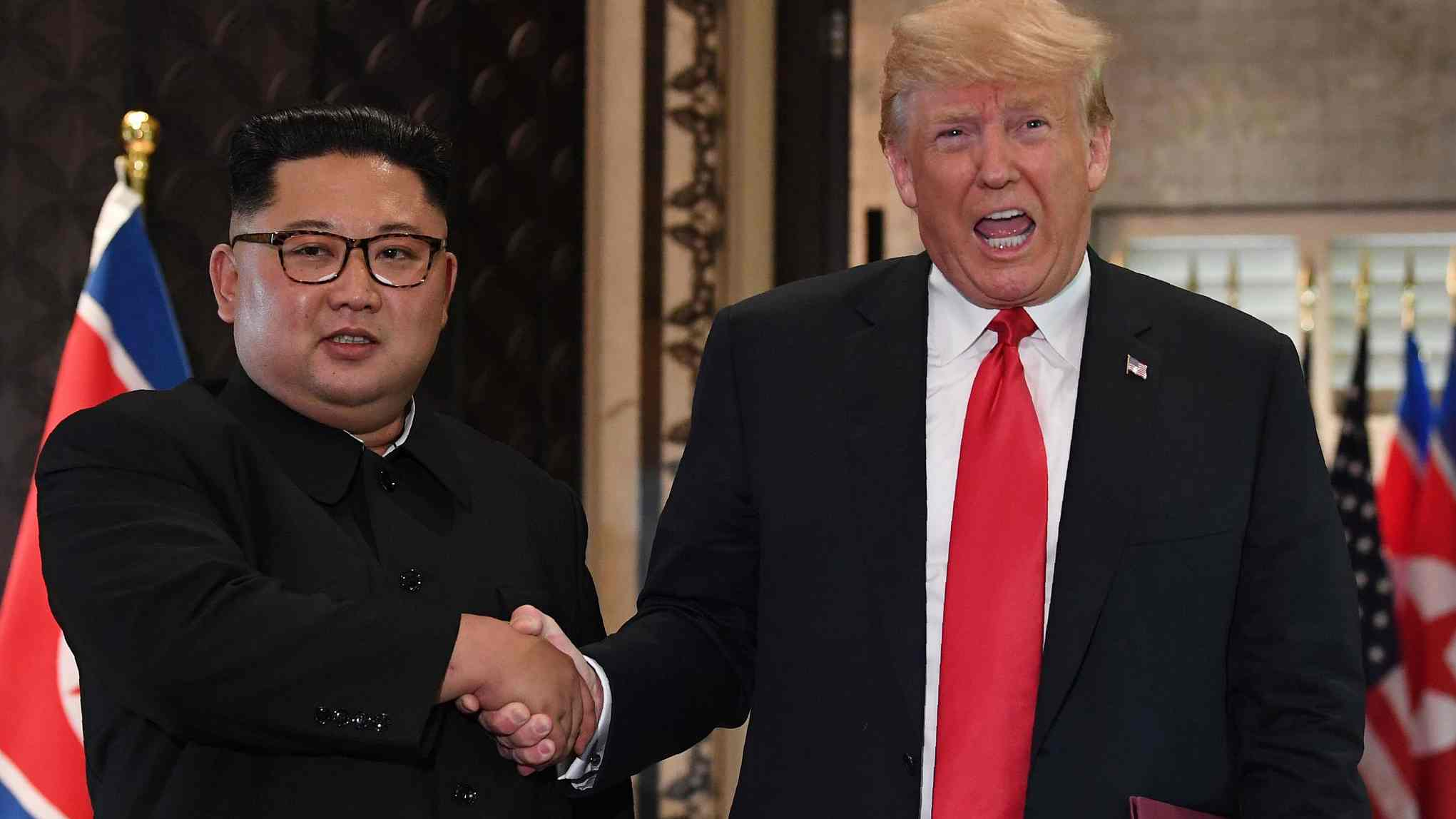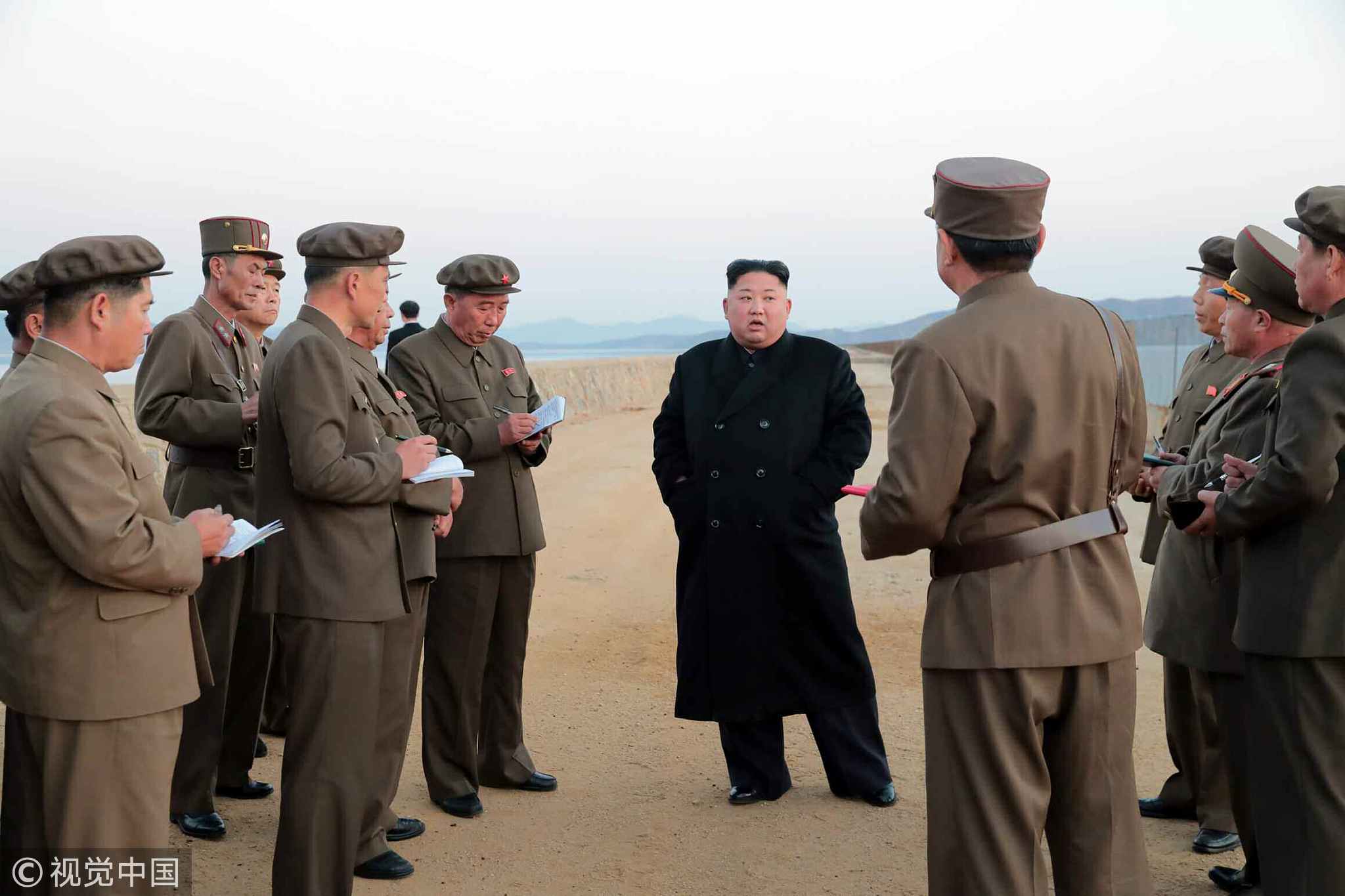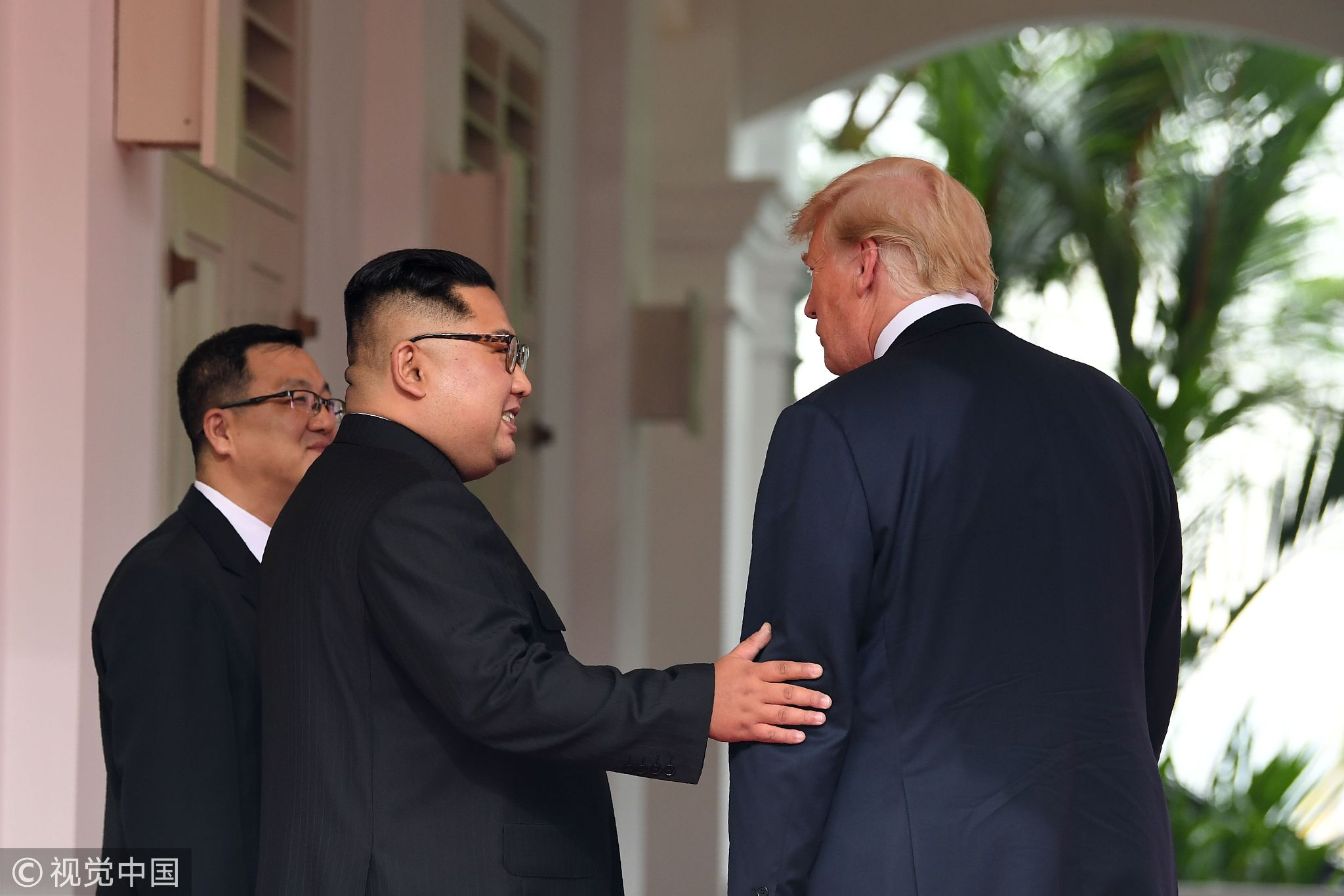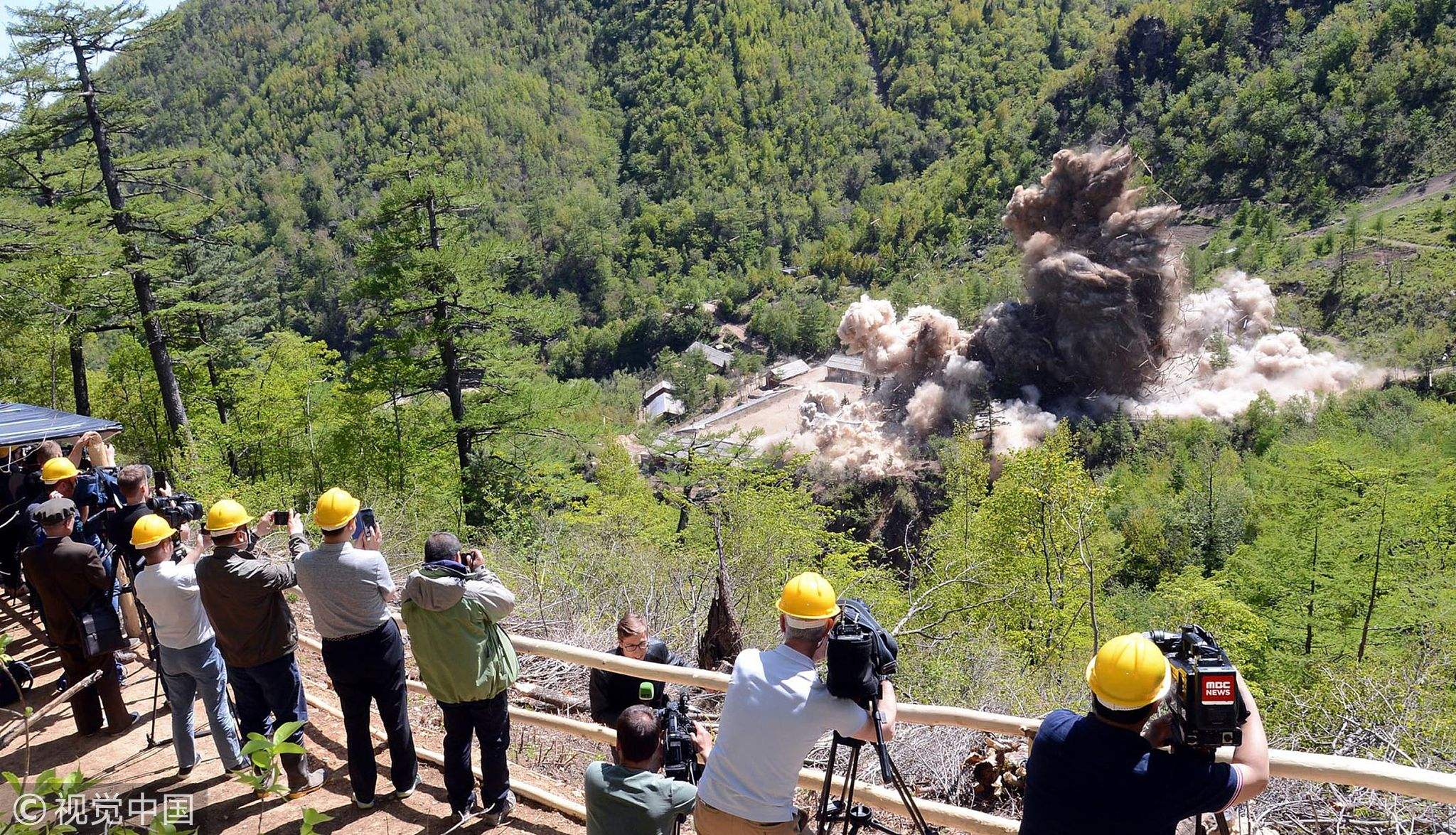
Opinions
10:38, 17-Nov-2018
Opinion: Washington's DPRK approach isn't working
Updated
09:37, 20-Nov-2018
Tom Fowdy

Editor's note: Tom Fowdy is a UK-based political analyst. The article reflects the author's views, and not necessarily those of CGTN.
Watchers of the Korean Peninsula responded with surprise when the Korean Central News Agency (KCNA) published a report on November 16 that DPRK leader Kim Jong Un had inspected the testing of an "unspecified tactical weapon."
The inspection marks the first visit by the leader to a military related cause since August 2017, demonstrating a subtle shift in DPRK's diplomatic rhetoric in order to express dissatisfaction with the US.
Although the "unspecified weapon" test was not related to DPRK's nuclear program, therefore, not breaching UN resolutions, nevertheless, it is a subtle signal that Pyongyang is clearly unhappy with the path negotiations are taking.

According to the Korean Central News Agency, DPRK's top leader Kim Jong Un directs the newly developed sophisticated tactical weapons test at the National Defense Academy, November 16, 2018. /VCG Photo
According to the Korean Central News Agency, DPRK's top leader Kim Jong Un directs the newly developed sophisticated tactical weapons test at the National Defense Academy, November 16, 2018. /VCG Photo
Washington's hawkish approach that believes uncompromising sanctions pressure can force the country to denuclearize is simply not working, which is risking a window of opportunity for a unique rapprochement between the two countries.
The idea that the US could force the DPRK to surrender its entire nuclear program successfully is a myth created, peddled and opportunistically exploited by the Trump administration.
A year ago, the White House sold the "maximum pressure" approach on the logic that if Washington could force Pyongyang to reconsider its own survival, faced by unprecedented sanctions and the unreserved threat of military action, then it would eventually grovel to put its nuclear program on the table.
Despite Trump's erratic, abrasive and unhinged threats, the political mainstream praised the policy, mostly due to their clique understanding of the DPRK issue and the sensationalized portrayal of the DPRK as a pantomime villain throughout the West.
Of course, the country opened up negotiations in 2018, which led to the assumption Trump had succeeded in bringing Pyongyang to its senses. Trump was not shy in prematurely claiming his own success and resolution of the issue.

DPRK leader Kim Jong Un (C) meets with US President Donald Trump (R) during their historic US-DPRK summit, Sentosa Island, Singapore, June 11, 2018. /VCG Photo
DPRK leader Kim Jong Un (C) meets with US President Donald Trump (R) during their historic US-DPRK summit, Sentosa Island, Singapore, June 11, 2018. /VCG Photo
However, this was part of the problem. Trump's policy was not so much all substance, as it was theater. While undoubtedly, sanctions' pressure was tightened and seemingly the country was unnerved by speculation of preemptive attack from the US, nevertheless, Trump cynically exaggerated his own success in these areas and bent the political narrative to his own manipulation.
Trump repeatedly grabbed the headlines on the issue by making threats, overstating the impact of sanctions and saying Pyongyang would certainly denuclearize at the promise of American investment, having experienced a change of heart and decided to make the "right decisions"
However, all of this discourse was what people wanted to hear, and was far removed from the country's thinking. People spoke ludicrously about a noble peace prize, his supporters claimed victory and said even they were "genuinely shaking" at a deal being done.
Yet, the truth was far from it; the administration had misled the public, even many of its usual opponents, and created a disconnection between expectations and reality. Hyperbole and reality show style broadcasting are not substituted for diplomacy and strategy.
As a result of amplifying policy and public expectations to unrealistic levels, Trump now has his hands tied over the DPRK issue, unable to find any serious way forward and with his so-called "leverage," which has failed to yield any kind of meaningful result.
The reality of the scenario in practice was not that Pyongyang fell to its knees and surrendered to the "American heroes" unconditionally, but that it saw diplomacy as the best tactic to offset Trump's strategy, improve relations and contain him.
Thus, nothing has been confirmed concerning denuclearization, with Kim approaching negotiations with a cautious mindset that concessions can only be made in exchange for serious reciprocal measures from the US.
Due to the prevailing influence of Trump's self-imposed benchmark, as well as hawks in the White House, the administration has refused to give any ground in this area.

Demolition ceremony underway at DPRK's Punggye-ri nuclear test site; the picture is released by the Korean Central News Agency (KCNA) on May 25, 2018. /VCG Photo.
Demolition ceremony underway at DPRK's Punggye-ri nuclear test site; the picture is released by the Korean Central News Agency (KCNA) on May 25, 2018. /VCG Photo.
Instead of looking for pragmatic outcomes, they have continued to demand denuclearization as a preliminary conclusion before anything is given. As a result, talks are now stalling.
The DPRK has begun to voice increasing displeasure against Washington's inflexibility, hinting at resuming their weapons program and now for the first time, reflecting that at the highest level. While it is unlikely Pyongyang would scupper talks, it is a blunt declaration they aren't going to get much further if this problem is not addressed.
For now, Washington has chosen to dismiss Pyongyang's rhetoric as posturing and reiterate their confidence in Kim fulfilling his commitments, perhaps in its belief that maintained sanctions would get the country there in the end.
Thus, rather than admitting flaws in their hubris-driven approach, they are instead kicking the can down the road. While confrontation is unlikely to resume, Trump's mentality is nevertheless naive as it is forsaking a golden window for a new era in DPRK-US ties.
As Kim Jong Un wrestles his way out of isolation and legitimates himself on the international stage, he may eventually feel empowered to the point that such an opportunity for Washington may never come again.
(If you want to contribute and have specific expertise, contact us at opinions@cgtn.com.)

SITEMAP
Copyright © 2018 CGTN. Beijing ICP prepared NO.16065310-3
Copyright © 2018 CGTN. Beijing ICP prepared NO.16065310-3